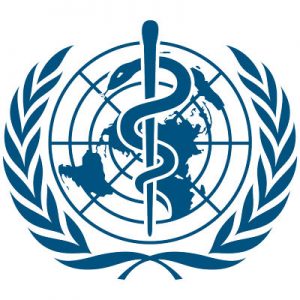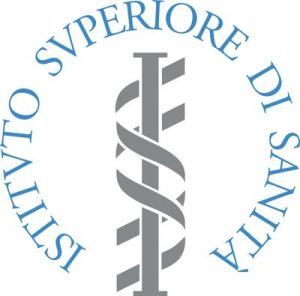Experts Warn Against Misguided E-Cigarette Regulation
A team of experts on public health, communication and legal matters from the University of Catania have recently published a paper on the dangers of misguided e-cigarette regulation, in which they warn that policies that put corporate interests above public health could have very serious consequences.
 Titled “Achieving Appropriate Regulations for Electronic Cigarettes“, the paper written by communication, legal and public health experts Daniela Saitta, Giancarlo Antonio Ferro and Riccardo Polosa from the University of Catania, Italy, was published in Sage Publications’ Therapeutic Advances in Chronic Disease journal. The extensive paper presents an overview of existing and necessary regulations for electronic cigarettes, as well as recommendations to minimize unintended negative effects of ill-informed regulations.
Titled “Achieving Appropriate Regulations for Electronic Cigarettes“, the paper written by communication, legal and public health experts Daniela Saitta, Giancarlo Antonio Ferro and Riccardo Polosa from the University of Catania, Italy, was published in Sage Publications’ Therapeutic Advances in Chronic Disease journal. The extensive paper presents an overview of existing and necessary regulations for electronic cigarettes, as well as recommendations to minimize unintended negative effects of ill-informed regulations.
Dr Riccardo Polosa, a reputed scientist who has conducted a series of studies into the safety and efficacy of electronic cigarettes as an alternative to tobacco, and his colleagues, present e-cigarettes as much more effective that classic nicotine replacement therapy (nicotine gum, patches, etc.), replacing most of the behavioral, sensory and social components associated with smoking. As a consequence, the popularity of electronic cigarettes has skyrocketed in recent years, prompting experts to predict they will eventually overtake analogs in the next decade. However, these products have to be properly regulated to protect consumers, while taking into account current scientific evidence and consumer insights.
According to the three Italian experts, most anti-tobacco advocates are calling for restrictive regulations for electronic cigarettes on the basis that the potential health risks associated with their use have not been studied extensively. This precautionary principle may sound reasonable, but the Court of Justice of the European Union has made it very clear through a series of judgments that that precautionary measures taken by Member States in the fields of health, food and consumer protection must be based on the existence of a risk to health endorsed by clear scientific evidence, not just hypothetical considerations. In 2009, the first report by the World Health Organization Study Group on Tobacco Product Regulation advised a precautionary approach, based on the fact that at the time studies on e-cigarettes and their effects on human health were virtually non-existent. Today however, we have a growing number of scientific studies that attest the safety and efficacy of electronic cigarettes.
A study conducted by Dr. Polosa himself shows that even smokers with no desire to quit may do so with the help of e-cigarettes, and there is ample scientific evidence that proves the level of risk associated with electronic cigarettes is much lower than cigarette smoking, with levels of chemicals found in e-liquid too low to cause serious concerns. In the most comprehensive systematic review of chemical studies to date, Professor Igor Burstyn concluded there is no real health danger associated with e-cigarette vapor. Regarding the effects of e-cigarette vapor on bystanders, recent evidence suggests they are minimal compared to those of tobacco cigarettes. “This is not surprising considering the nature and levels of contaminants in the vapor and the notion that, unlike tobacco cigarettes, sidestream smoke exposure is non-existent in e-cigarettes, that is, the only vapor released into the air is that exhaled by the user, not the e-cigarette itself.
Regarding the frequently-expressed concerns about electronic cigarettes being a gateway to smoking for minors and non-smokers, the three Italian experts claim they are  unsubstantiated, considering resent data shows e-cigarette use by youngsters is virtually non-existent unless they are already smokers. E-cigs are not advertised as products every man, woman or child should try, but as an alternative to smoking, and is therefore only marketed to smokers. Inhibiting the distribution of e-cigarettes on such grounds would only affect public health, by continuing to expose the population to the already proven dangerous tobacco smoke. Dr. Polosa believes electronic cigarettes are in fact a gateway out of smoking and not the other way around.
unsubstantiated, considering resent data shows e-cigarette use by youngsters is virtually non-existent unless they are already smokers. E-cigs are not advertised as products every man, woman or child should try, but as an alternative to smoking, and is therefore only marketed to smokers. Inhibiting the distribution of e-cigarettes on such grounds would only affect public health, by continuing to expose the population to the already proven dangerous tobacco smoke. Dr. Polosa believes electronic cigarettes are in fact a gateway out of smoking and not the other way around.
Long-term exposure to nicotine is another element that seems to be influencing the way authorities plan to regulate electronic cigarettes. All medically approved treatments for smoking cessation, whether pharmaceutical or behavioral focus on total abstinence from nicotine. That would make sense if nicotine were indeed responsible for smoking-related diseases, but research has shown the addictive substance is responsible for 1% of the health risks associated with smoking. The other 99% is caused by tar and the thousands of other chemicals found in tobacco smoke. Decades of research on Swedish smokers who switched to snus ( a kind of moist snuff) showed no increase of any type of cancer, cardiovascular disease or lung disease, and a review of over 120 studies on NRT (nicotine replacement therapy) found that adverse effects on users may be discomforting but are not life-threatening. Ricardo Polosa and his colleagues agree that complete smoking cessation is best for smokers, but for those who experience long-term, even lifelong disruption of brain function, mood or cognitive ability, it may not be the best approach. Some of them may need long-term nicotine maintenance to keep them from relapsing. Concerns that e-cigarettes may encourage higher consumption of nicotine or perpetuate addiction to nicotine, making them less likely to quit altogether, are mostly theoretical and not based on any scientific evidence.
In the first half of 2013, the European Union tried to classify e-cigarettes as medical products, which meant they would have had to undergo a long and costly authorization process before being released on the market. Prices would have increased considerably, maybe even to the point where switching to low-risk e-cigs would have been more expensive than continued smoking. Access to electronic cigarettes would have been hindered not only by the fact that they could only be purchased in authorized pharmacies, but also because internet sales would have been virtually banned. “In these authors’opinion it is counterproductive and hypocritical to over-regulate a product design to reduce or eliminate the diseases and early deaths caused by smoking”, the paper reads. Unfortunately, the newly adopted EU tobacco directive still allows Member Countries to regulate e-cigs and medical products, if they so desire. “Excessive and ill-conceived regulation will marginalize these products by making them unattractive to smokers and less competitively priced compare with tobacco products, by preventing clear communication about reduced risks or by making them hard to access,” the three authors say.
Based on what we already know about electronic cigarettes and keeping in line with what actual users desire, Polosa, Saitta and Ferro believe future regulatory measures should focus on quality standards and monitoring e-cigarettes and e-liquids. They recommend regulation should follow the following:
– evidence that good manufacturing practice (GMP) has been followed;
– child-proof caps on e-liquid containers;
– official documentation reporting on the contents of e-cigarette fluids to regulators;
– clear, accurate and detailed labeling about the contents and the hazards associated with e-cigarette use.
 Apparently, one such regulatory framework already exists; e-cigarettes may be marketed as dietary supplements providing no claims about treating or preventing disease are made. Being compliant with GMP policies is all that is required to ensure that e-liquids are produced in a quality manner. They must not contain impurities or contaminants, should be accurately labeled and held under conditions to prevent adulteration. Already existing directives about electronic products safety must also be integrated.
Apparently, one such regulatory framework already exists; e-cigarettes may be marketed as dietary supplements providing no claims about treating or preventing disease are made. Being compliant with GMP policies is all that is required to ensure that e-liquids are produced in a quality manner. They must not contain impurities or contaminants, should be accurately labeled and held under conditions to prevent adulteration. Already existing directives about electronic products safety must also be integrated.
Unfortunately, such simple framework may be impossible to implement politically, because the growing popularity of electronic cigarettes is affecting tobacco cigarette consumption and nicotine replacement therapy sales. “The fat revenues generated by tobacco excise taxes are very much needed by authorities to run their national, state and local governments. Fees and investments from the pharmaceutical industry for the marketing of anti-smoking drugs and medications intended to treat tobacco-related diseases are much needed by regulatory bodies, health authorities and medical societies for the running of their statutory activities,” the authors write. “If these obstacles can be overcome, much misery and suffering can be reduced and millions of lives can be saved.”
















